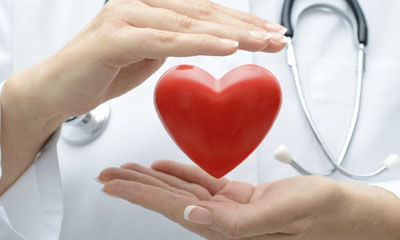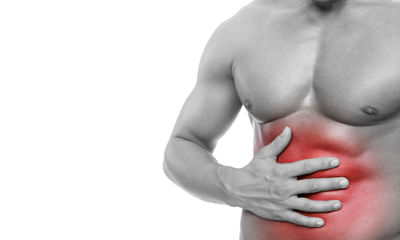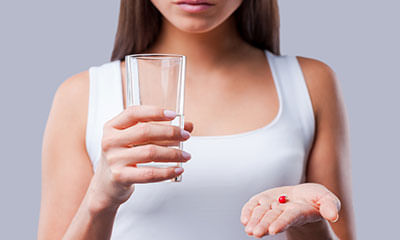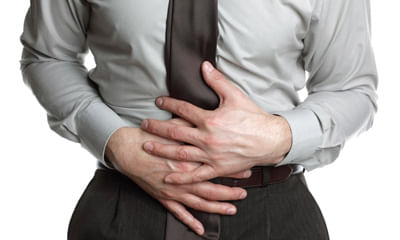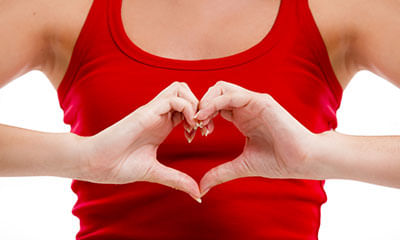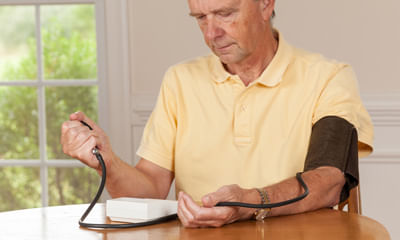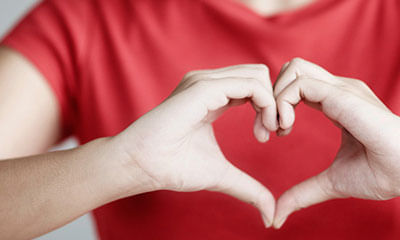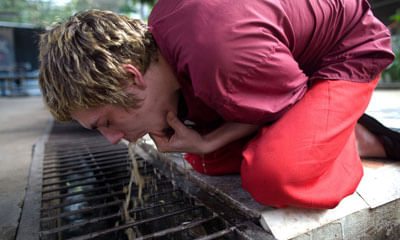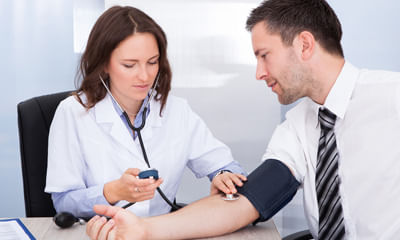Irregular Heartbeat After Eating
My mother is heart patient she is 50 and mostly she has low bp but from last five years her blood pressure is fine but h ...
Ask Free Question
First you need to consult cardiologist to rule out any problem. If its ok, then it can be because of many reasons like menopause, anxiety etc. I need details of the case. In the meanwhile follow this 1. Take your breakfast every day. Don't skip it. U should eat whatever your mother or grandparent eat in bfast. I mean to say whatever is your traditional food. If punjabi eat paratha, if belongs to south then take idli/ dosa etc. (preferably within 10 mins of waking up). No only biscuits or rusk will not do. 2. Don't overeat 3. Don't take tea empty stomach. Eat something like a banana (if you are not diabetic) or any seasonal fruit or soaked almonds and a glass of plain water first thing in the morning 4. Have light meals every 2 hours (in addition to your breakfast, lunch n dinner) e.g. Nariyal paani, chaach, a handful of dry fruits, a handful of peanuts, any fresh n seasonal fruit (eat whole fruit not juice), a cup of curd/milk etc 5. Take simple food like rice n dal in dinner. Finish your dinner at least 2 hours before going to sleep. 6. Maintain active life style7. Avoid fast foods, spicy n fried foods, carbonated beverages 8. Take a lot of green vegetables n fruit. 9. Drink lot of water.10. Everyday preferably sleep on same time 11. Take 1tsp of ghee in bfast, lunch n dinner. Exercise in the form of yoga, cycling, swimming, gym etc. Till lock down do suryanamaskar.
Hello doctor, I have acidity for past 4-5 years I took all medications but it will not work, today I experience heart at ...
Ask Free Question
Since when r you having this?What r other symptoms that you r experiencing? By doing what like walking, exertion, eating or empty stomach- it increases or decreases in intensity. For how much time it remains?How is your appetite?R you constipated or having loose stools? Is there stiffness also? Any problem in urine?It can be because of gas or acidity or indigestion, gastritis, gerd, diarrhoea, constipation, ibs etc but I need details of the case. In the meanwhile follow this 1. Take your breakfast every day. Don't skip it. U should eat whatever your mother or grandparent eat in bfast. I mean to say whatever is your traditional food. If punjabi eat paratha, if belongs to south then take idli/ dosa etc. (preferably within 10 mins of waking up). No only biscuits or rusk will not do. 2. Don't overeat 3. Don't take tea empty stomach. Eat something like a banana (if you are not diabetic) or any seasonal fruit or soaked almonds and a glass of plain water first thing in the morning 4. Have light meals every 2 hours (in addition to your breakfast, lunch n dinner) e.g. Nariyal paani, chaach, a handful of dry fruits, a handful of peanuts, any fresh n seasonal fruit (eat whole fruit not juice), a cup of curd/milk etc 5. Take simple food like rice n dal in dinner. Finish your dinner at least 2 hours before going to sleep. 6. Maintain active life style7. Avoid fast foods, spicy n fried foods, carbonated beverages 8. Take a lot of green vegetables n fruit. 9. Drink lot of water.10. Everyday preferably sleep on same time 11. Take 1tsp of ghee in bfast, lunch n dinner. Exercise in the form of yoga, cycling, swimming, gym etc. For more details, you can consult me.
I took etilaam 5. S tab 10 for 10 days and opiprol for 20 days by doctor suggestions after that I noticed I got side eff ...
Ask Free Question
Making healthy lifestyle changes and eating a healthy balanced diet can help. Lose weight if you are overweight. Let's connect over a call so that we can discuss your concern in details and make a suitable treatment plan for you.
Dear doctor I am suffering from severe gastritis. One week ago done ecg. Blood test all are normal. Having palpitations ...
Ask Free Question
Heart palpitations are abnormal or irregular heartbeats that cause a thumping or fluttering feeling in your chest — sometimes also described as "missing a beat. Palpitations can occur with heart rates that are too rapid or too slow. They can be triggered by stress, exercise, diet, medication and sometimes by a medical condition. Although heart palpitations can be a worrisome or a strange experience, they're usually harmless. In most cases, it's possible to find the cause and address it in order to reduce palpitations. Rest and take a break. Some people experience heart palpitations due to physical overexertion or being too active; however, an increased heart rate from exercise or anxiety (called tachycardia) is not the same as palpitations. Both can happen at the same time, although palpitations are defined best as unusual heart beats, not just fast heart beats. If your palpitations seem to be sometimes triggered by exercise, then stop what you're doing and rest for five to 10 minutes and catch your breath. Alternatively, reduce your exertions or change your exercise to something less strenuous. Walk instead of jogging, for example. Lift smaller weights. Gently tread water in the pool instead of doing strokes. Resting heart rates vary between people, but it's typically between 60 and 100 beats per minute. Palpitations can occur above, below or within the normal heart beat range. Reduce your stress/anxiety. Moderate-to-high levels of stress and anxiety are relatively common triggers for heart palpitations due to the release of too much "stress hormones" into the bloodstream. Thus, you may be able to prevent or reduce your palpitations by managing how you react or respond to stressful situations. Stress-relieving techniques like yoga, tai chi, deep breathing, visualization, meditation, biofeedback and aromatherapy are all helpful for promoting relaxation and better heart health. Ask at your local gym or health clinic about joining a yoga or tai chi class. Taking deep breaths can naturally lower your heart rate and reduce the occurrence of heart palpitations, especially if you practice positive visualizations or guided imagery. Buy some relaxing aromatherapy candles (lavender scented, for example) and light them in the evenings prior to going to bed. Don't forget to get enough sleep — at least eight hours per night, although some people need a little more. A chronic lack of sleep can lead to anxiety and heart palpitations. Remove yourself from stressful situations, such as arguments. Quit focusing on financial problems. Stop watching scary movies or shows. Avoid consuming stimulants. There are a number of substances that affect your central nervous system (cns) and can trigger heart palpitations, including alcohol, caffeine, nicotine, illicit drugs (such as cocaine and amphetamines) and some over-the-counter medications (particularly cold and cough medicines. Thus, if you're having periodic heart palpitations, consider what you're putting into your body on a regular basis, because it could very likely be the cause. Vagal maneuvers are simple actions that you can do at home to affect your vagus nerve, which is the primary one that regulates your heart rate.] vagal maneuvers can slow your heart rate down and stop palpitations within seconds if done correctly. The valsalva technique involves holding your breath and bearing down as if you're having a bowel movement for about 15– 20 seconds — it increases your intrathoracic pressure and stimulates the vagus nerve. The valsalva technique can change the rhythm of electrical impulses in your heart, help your heart rate return to normal and reduce palpitations. The valsalva maneuver shouldn't be done if you have heart disease or are advanced in age, as it may increase the risk of stroke. Activate your diving reflex. The diving reflex gets activated when your head or face gets cold for more than a few seconds — your heart rate slows down to reduce blood flow in an attempt to survive, which is helpful when submerged in cold water. To trigger this survival reflex, place very cold water or an ice pack against your face for about 10 seconds. Your heart rate and palpitations should reduce pretty quickly. Dip your face or submerge your head in cold water. Put a wet face cloth in the freezer for 30 minutes then press it against your face. Alternatively, drinking a glass of very cold water will cool the hard palate of your upper mouth and also mildly trigger the diving reflex. Vagal maneuvers are simple and generally quite safe to do, but they should be done as soon as you realize you're experiencing palpitations for best results. Do not attempt vagal maneuvers while standing — they can sometimes cause dizziness and fainting. Ry coughing a bunch of times. You can also try coughing forcefully (or clearing your throat) multiple times in efforts to move your diaphragm, increase intra-thoracic pressure, and stimulate your vagus nerve. In essence, coughing creates the same physiological effects as bearing down (the valsalva technique), but some people may find it easier to perform. When coughing, it must be forceful enough and sustained — a single, light cough won't likely trigger a vagal response. Make sure to completely swallow any food you're eating or beverages you're drinking in order to prevent the risk of choking. If you're unsure, ask your doctor for a demonstration of vagal maneuvers. For medication consult online in private.
I am less than 18 with a question about my heartbeat. I know the heart is supposed to have two consecutive sounds follow ...
Ask Free Question
No there is no pause after 2 consecutive heart beats. Moreover you have not mentioned what symptoms are you having. Since when r you having this. U seems to be you der stress. Try to relax yourself -- exercise. Exercise is one of the most important things you can do to combat stress. Take a few minutes to breathe in and out in slow, deep breaths. Reduce your caffeine intake. Write it down. Chew gum. Spend time with friends and family. Laugh. Massage. Eat a healthy diet. Pursue one hobbywalk in nature meditation. Yoga. For more details you can consult me.
Hello all, my mother is a blood pressure patient since 9 years and eats medicine daily. She eats telma 20 mg. I have bee ...
Ask Free Question
Any medication can cause side effects, and high blood pressure (hbp) medications are no exception. However, many people do not have side effects from taking hypertension drugs, and often the side effects are mild. Still, it's important to stay informed we need sodium to help maintain blood pressure, regulate fluids, and aid in the function of our nerves and muscles. Low blood pressure might seem desirable, and for some people, it causes no problems. However, for many people, abnormally low blood pressure (hypotension) can cause dizziness and fainting. In severe cases, low blood pressure can be life-threatening. A blood pressure reading lower than 90 millimeters of mercury (mm hg) for the top number (systolic) or 60 mm hg for the bottom number (diastolic) is generally considered low blood pressure.
Hi Sir, I have been struggling with eating disorders (anorexia & bulima). I've noticed that a few hours after eating, my ...
Ask Free Question
Asthma is a condition in which your airways narrow and swell and produce extra mucus. This can make breathing difficult and trigger coughing, wheezing and shortness of breath. Asthma can't be cured, but its symptoms can be controlled. Because asthma often changes over time, you may need a proper consultation if still in doubt.
While i am walking little bit my heartbeat speed, why it's happening in 7 days? its happening in workout also little bit ...
Ask Free Question
Fast heart beat is normal after exercise etc. But you have not mentioned exact heartbeat. Nausea can be because you are not eating properly. Esp pre and post exercise meal are very important. Consult online for details.
Hello, My early morning bpm is 65 and when I check it other times of the day it is in 80's and recently had my blood pre ...
Ask Free Question
You don't need medicine for this, you are absolutely healthy, usually bpm is less during sleep and early morning which can go as low as 55, other times it can increase based on physical activity or emotional stress, upto 100 is not something abnormal, so stop taking unnecessary stress, stay happy and keep walking in the morning, all the best.
I am a dvr patient. Sometimes I feel irregular heartbeat with a little problem in breathing. I eat clavix as 75. Doctor ...
Ask Free Question
Irregular heartbeat can be due to thyroid problem, it may be due to heart problem also, you should continue the medicine.

